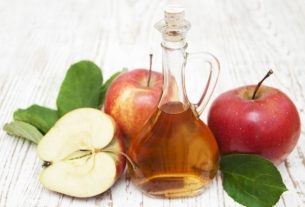Some teas for body pain, such as fennel tea, ginger tea or nettle tea, have anti-inflammatory, analgesic, calming or antispasmodic properties that help relieve muscle pain.
Muscle or body pain can occur after excessive physical activity, great effort or as a symptom of an illness, such as flu, colds, rheumatism, rheumatoid arthritis or osteoarthritis, for example.
Although they cannot replace medical treatment, teas for body pain are a good option for relieving muscle pain, and can be used to complement the treatment recommended by your doctor.
12 teas for body pain
Some tea options for body pain or muscle pain are:
1. Fennel tea
Fennel tea is excellent for muscle pain, as it has a calming and antispasmodic action that helps the muscle to relax.
Ingredients
- 5 g of fennel;
- 5 g of cinnamon stick;
- 5 g of mustard seeds;
- 1 liter of water.
Preparation mode
Put the water to boil in a pan. When it starts to boil, turn off the heat and set aside. Add the other ingredients to another pan and pour the still hot water over them, letting it rest for 5 minutes. Leave to cool and strain. Drink 2 cups of tea a day.
Fennel tea should not be used by children under 12 years of age, pregnant or breastfeeding women, or people with allergies to anise or the compound anethole.
Furthermore, as it has an estrogenic effect, anise tea should be avoided by people with hyperestrogenism or by women with breast cancer who are taking hormone replacement therapy.
2. Carqueja tea
Carqueja tea is great for reducing muscle pain because it has anti-inflammatory, antirheumatic and tonic properties that reduce muscle contraction and prevent swelling.
Ingredients
- 20 g of carqueja leaves;
- 1 liter of water.
Preparation mode
Place the ingredients in a pan and let it boil for about 5 minutes. Then let it cool, strain and drink 4 cups a day.
Carqueja tea should not be used by children, pregnant or breastfeeding women, or by diabetic or hypertensive people, as it may increase the effect of medications being used to treat these diseases and cause side effects.
3. Eucalyptus tea
Eucalyptus is a great home solution for muscle pain, as it is a plant with excellent anti-inflammatory and antispasmodic properties that reduce muscle contraction, relieving pain and reducing swelling.
Ingredients
- 80 g of eucalyptus leaves;
- 1 liter of water.
Preparation mode
Place the ingredients in a pan and let it boil for 10 minutes. Then let it cool and strain. Take local baths with the tea twice a day. Another good tip is to place the boiled leaves in sterilized gauze and place it over the muscle. Also discover other natural options to relieve muscle pain.
Eucalyptus tea should not be used if you are allergic to this plant, during pregnancy and in people who have gallbladder problems and liver disease.
4. Ginger tea
Ginger tea, made with the medicinal plant Zinger officinalis, is rich in anti-inflammatory and antioxidant substances such as gingerol, chogaol and zingerone, being very useful for relieving body pain or muscle pain caused by arthritis, rheumatism or physical activities. Discover other benefits of ginger.
Furthermore, this tea helps to strengthen the immune system and reduce the duration of colds and flu, which can also cause body pain.
Ingredients
- 1 cm of ginger root, cut into slices or grated;
- 1 liter of boiling water.
Preparation mode
Bring the water to a boil and add the ginger. Let it boil for 5 to 10 minutes. Remove the ginger from the cup and drink the tea in 3 to 4 divided doses throughout the day.
Another option for making tea is to replace the root with 1 teaspoon of powdered ginger.
This tea should be avoided by people with stomach ulcers, as it has anticoagulant properties that can increase bleeding or hemorrhage.
5. Thyme tea
Thyme tea, made from the medicinal plant Common thymeis rich in methyl chavicol and thymol, which increase the activity of neurotransmitters in the brain, such as GABA, which contributes to the body’s feeling of relaxation, well-being and tranquility, reducing body pain or muscle pain.
Ingredients
- 1 teaspoon of dried or dehydrated thyme;
- 1 cup (tea) of water.
Preparation mode
Bring the water to a boil, then turn off the heat and add the thyme leaves. Cover the pan, let it rest for 10 minutes, strain and then drink warm. You can drink up to 3 cups of this tea per day.
Thyme tea should not be used by people with stomach problems such as gastritis or ulcers, by people with liver disease or who use anticoagulant medications such as warfarin or clopidogrel, for example.
6. Arnica tea
Arnica tea has anti-inflammatory and analgesic properties that help relieve muscle pain caused by muscle strain or strain due to physical activity or in the case of a stiff neck, for example. Check out other ways to use arnica to relieve muscle pain.
It is important to highlight that arnica tea should not be ingestedas it has toxic properties and should only be used to make topical compresses.
Ingredients
- 1 teaspoon of dried arnica flowers;
- 250 mL of boiling water.
Preparation mode
Place the dried arnica flowers in boiling water and let it rest for 10 minutes. Strain, dip the compress and apply warm to the sore muscle, 2 to 3 times a day.
7. Juniper tea
Juniper tea (Common juniper) is rich in essential oils and flavonoids with powerful anti-inflammatory action, which help relieve muscle pain, joint pain or tendonitis, for example.
Ingredients
- 2 to 3 crushed juniper berries (fruit);
- 1 cup of water;
Preparation mode
Boil the water and then turn off the heat and add the boiling water to the cup with the juniper berries. Let it rest for 5 minutes and strain. It is recommended to drink a maximum of 1 to 3 cups per day, for a maximum period of 6 weeks.
Another way to use juniper for body pain or muscle pain is to use juniper tincture or essential oil. See other ways to use juniper.
Juniper tea should not be used by babies, children, pregnant or breastfeeding women and people with nephritis, which is an infection of the kidneys.
Furthermore, juniper tea should be used with caution by diabetics or hypertensive patients, as it can increase the effect of medications for these diseases and cause side effects.
8. Nettle tea
Nettle tea, prepared with the medicinal plant Stinging nettleis a good home remedy for body pain, muscle or joint pain caused by arthritis, osteoarthritis or rheumatism, as it facilitates the elimination of uric acid, which is related to rheumatological diseases.
Ingredients
- 1 tablespoon of dried nettle leaves;
- 1 cup of boiling water.
Preparation mode
Add the dried nettle leaves to the boiling water and let it rest for 10 minutes. Wait for it to cool, strain and drink up to 3 cups a day.
Another way to use nettle to obtain its benefits is in the form of capsules, which can be taken 1 capsule of 400 mg, 2 to 3 times a day. See other ways to use nettle.
Nettle tea should not be used by pregnant or breastfeeding women, or by people who have kidney problems, such as kidney failure, or heart problems such as heart failure, as it may worsen the symptoms of these conditions.
9. Harpago tea
Harpago tea, made from the medicinal plant Harpagophytum reclininghelps to relieve muscle pain, pain in the body or joints, especially in cases of arthritis or osteoarthritis, as it is rich in flavonoids, kaempferol and caffeic and chlorogenic acids, with anti-rheumatic, anti-inflammatory, analgesic and antioxidant properties.
Ingredients
- 1 teaspoon of dried harpago roots;
- 1 cup of water.
Preparation mode
Place the dried harpago root and water to boil for 15 minutes over low heat. Strain, wait for it to cool and drink 2 to 3 cups of tea per day.
This tea should only be used by adults and should not be ingested by pregnant women as it can cause problems in the fetus or breastfeeding women and by people who use anticoagulants such as warfarin as it can increase the risk of bleeding.
Another option is to use harpago in capsules, and it is recommended to take 1 capsule, two to three times a day, for at least 3 months of treatment. See how to take harpago capsules.
10. White willow tea
White willow tea, made from the medicinal plant Salix albais rich in salicin, a substance similar to the main ingredient in aspirin, with analgesic and anti-inflammatory properties, making it a good tea option for muscle pain or body pain caused by arthritis, osteoarthritis, osteoarthritis, gout, tendonitis, strain or muscle strain.
Furthermore, this tea can be a good option for relieving body pain and discomfort caused by flu or colds, for example.
Ingredients
- 1 teaspoon of dried and chopped willow bark;
- 1 cup of water.
Preparation mode
Bring the water to a boil and add the willow bark. Let it boil for 10 minutes, strain, wait for it to cool and drink up to 2 cups a day.
White willow tea should not be consumed by children, pregnant or breastfeeding women, people who are allergic to aspirin or who are using anticoagulants.
Furthermore, the use of this tea is not recommended for people with gastrointestinal problems, such as ulcers, gastritis, gastroesophageal reflux, colitis or diverticulitis.
11. Turmeric tea
Turmeric tea, also called turmeric, is rich in curcumin, a substance with powerful anti-inflammatory properties, which acts to reduce the symptoms of inflammation in the body, muscles, tendons and joints, making it an excellent tea for muscle pain or body pain.
Ingredients
- 1 level teaspoon of turmeric powder (200 mg);
- 1 cup of water.
Preparation mode
Put the water to boil and add turmeric. Let it boil for 5 to 10 minutes. Strain the tea and drink. You can drink 2 to 3 cups of turmeric tea per day.
Another option is to consume saffron in the form of turmeric capsules, which can be used by taking 2 250 mg capsules every 12 hours, totaling 1 g per day.
This tea or turmeric capsules should not be used by pregnant women, or people taking blood thinners, such as warfarin, clopidogrel or acetylsalicylic acid, as it may increase the risk of bleeding or haemorrhage.
12. Cat’s claw tea
Cat’s claw tea, prepared with the roots of the medicinal plant Uncaria tomentosa or Uncaria guianensishas anti-inflammatory and analgesic properties, which can help relieve body pain or muscle pain, especially in cases of bursitis, arthritis, osteoarthritis and rheumatoid arthritis.
Ingredients
- 1 teaspoon of dry cat’s claw roots;
- 1 liter of water.
Preparation mode
Boil the ingredients over low heat for 20 to 30 minutes and then remove from the heat. Then strain, wait for it to cool and drink 1 cup of tea up to times a day, between meals.
Cat’s claw tea should not be used by children, pregnant or breastfeeding women, or by people who are allergic to this medicinal plant.
Furthermore, this tea should not be used by people with autoimmune or kidney diseases, or who have leukemia, blood clotting problems, who are taking anticoagulant medications or who are going to have any type of surgery.

Sign up for our newsletter and stay up to date with exclusive news
that can transform your routine!
Warning: Undefined array key "title" in /home/storelat/public_html/wp-content/plugins/link-whisper-premium/templates/frontend/related-posts.php on line 12
Warning: Undefined array key "title_tag" in /home/storelat/public_html/wp-content/plugins/link-whisper-premium/templates/frontend/related-posts.php on line 13




